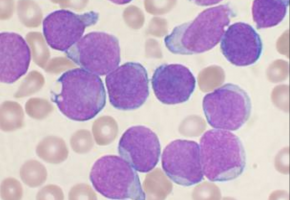
It has been announced that the US Food and Drug Administration (FDA) has granted Breakthrough Therapy Designation (BTD) for acalabrutinib as a monotherapy treatment for adult patients with chronic lymphocytic leukaemia (CLL), one of the most common types of leukaemia in adults.1
José Baselga, Executive Vice President, Oncology R&D, said: “This is an important regulatory milestone for our work in haematology and for patients living with chronic lymphocytic leukaemia, a life-threatening disease. The Breakthrough Therapy Designation acknowledges the growing body of evidence that supports acalabrutinib as a highly-selective Bruton tyrosine kinase inhibitor with the potential to offer patients a new, differentiated, chemotherapy-free treatment option with a favourable safety profile.”
The FDA granted the BTD based on positive results from the interim analyses of the ELEVATE-TN and ASCEND Phase III clinical trials.
Together the trials showed that acalabrutinib alone, or in combination with other medicines, significantly increased the time patients lived without disease progression or death, with safety and tolerability that was consistent with its established profile.
Acalabrutinib is currently approved for the treatment of adults with relapsed or refractory mantle cell lymphoma (MCL) in the US, Brazil, Qatar, the United Arab Emirates, Mexico, Argentina and recently Singapore and is being developed for the treatment of CLL and other blood cancers.
The positive results from both the ELEVATE-TN and ASCEND trials will serve as the foundation for regulatory submissions later this year.
About ELEVATE-TN
ELEVATE-TN (ACE-CL-007) is a randomised, multi-centre, open-label Phase III trial evaluating the safety and efficacy of acalabrutinib alone or in combination with obinutuzumab vs. chlorambucil in combination with obinutuzumab in previously-untreated patients with CLL.
In the trial, 535 patients were randomised (1:1:1) into three arms.
Patients in the first arm received chlorambucil in combination with obinutuzumab.
Patients in the second arm received acalabrutinib (100mg twice daily until disease progression or unacceptable toxicity) in combination with obinutuzumab.
Patients in the third arm received acalabrutinib monotherapy (100mg twice daily until disease progression or unacceptable toxicity).
The primary endpoint is progression-free survival (PFS) in the acalabrutinib and obinutuzumab arm compared to the chlorambucil and obinutuzumab arm, assessed by an independent review committee (IRC), and a key secondary endpoint is IRC-assessed PFS in the acalabrutinib monotherapy arm compared to the chlorambucil and obinutuzumab arm.
Other secondary endpoints include objective response rate, time to next treatment and overall survival.
About ASCEND
ASCEND (ACE-CL-309) is a global, randomised, multi centre, open-label Phase III trial evaluating the efficacy of acalabrutinib in previously-treated patients with CLL.
In the trial, 310 patients were randomised (1:1) into two arms.
Patients in the first arm received acalabrutinib monotherapy (100mg twice daily until disease progression or unacceptable toxicity).
Patients in the second arm received physician’s choice of either rituximab in combination with idelalisib or rituximab in combination with bendamustine.
The primary endpoint is PFS assessed by an IRC, and key secondary endpoints include physician-assessed PFS, IRC- and physician-assessed overall response rate and duration of response, as well as overall survival, patient-reported outcomes and time to next treatment.
Source: AstraZeneca
The World Cancer Declaration recognises that to make major reductions in premature deaths, innovative education and training opportunities for healthcare workers in all disciplines of cancer control need to improve significantly.
ecancer plays a critical part in improving access to education for medical professionals.
Every day we help doctors, nurses, patients and their advocates to further their knowledge and improve the quality of care. Please make a donation to support our ongoing work.
Thank you for your support.